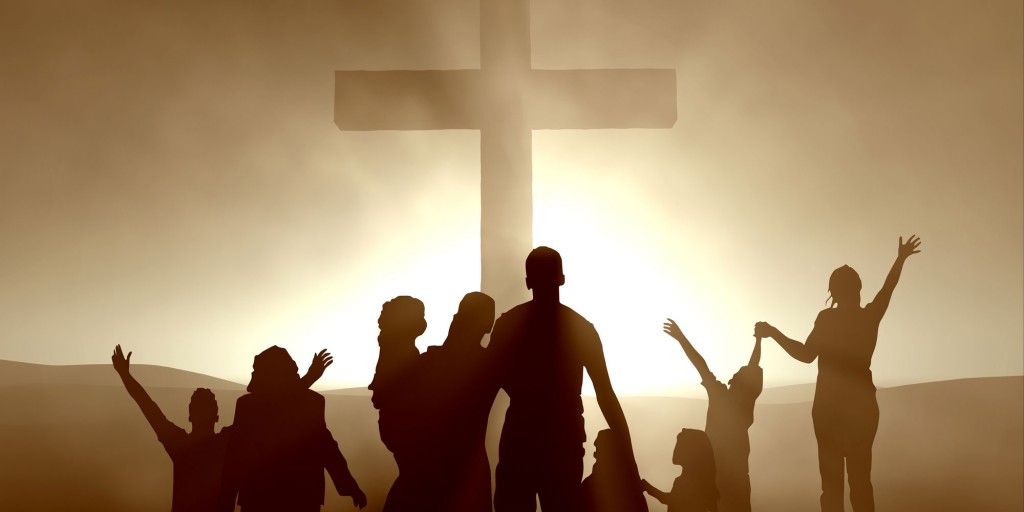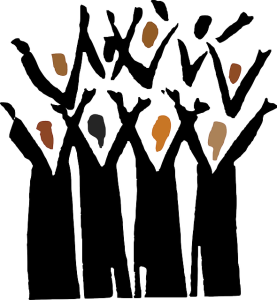Shaping Theme in Acts: The Holy Spirit Is for All God’s People
Have you ever sensed a powerful darkness in our culture, in our society? You don’t always notice it when you’re going about your everyday lives, but sometimes it hits you. There is powerful evil and darkness in this world. We see it all over the place in our news. And we think about that as Christians, and we have to ask ourselves: In the face of all this powerful darkness, is there any real power in the church?
The Holy Spirit Is for All of Us
In the book of Acts – the history of the origin of the church – we see that the Holy Spirit is for all of God’s people. There were five different groups of people that received the Holy Spirit:
- The disciples (2:1-4). And not just the eleven disciples (now apostles), but all 120 followers of Jesus mentioned earlier received the Holy Spirit.
- The Jews (2:38).
- The Samaritans (8:14-17). This would have been unthinkable to the most religious Jews, because the Samaritans were considered impure, unclean, half-breed people.
- The Gentiles (10:44-45). This was everyone who was not part of God’s chosen people, the Jews – unclean, impure, unholy, idolatrous people who did not worship the one true God.
- The Ephesians (19:1-7). These were the Gentiles in Ephesus – a whole new center for ministry to the world.
It doesn’t follow any particular formula – the way they received the Spirit varied – but you see that all of God’s people in the new covenant who were brought in through the gospel received the Holy Spirit. In Acts, the Holy Spirit is for all of God’s people. In the epistles, we see that the Holy Spirit is for all of God’s people as well (Rom. 8, passim; 1 Cor. 2:10-16; 1 Cor. 12:12-13; Gal. 3:1-9).
In present-day church, this means that the Holy Spirit is for all of God’s people still. The Holy Spirit is for all of us. The same Holy Spirit that empowered Jesus Christ’s ministry on earth, and the prophets, priests, and kings of the old covenant, and the apostles that we read about in Acts indwells you if you are a Christian. That same divine power resides in us.
There is a lot of darkness out there, and there is a lot of evil power in the world, but there is power in the church too. And it is a surpassing power. It’s the power of the Holy Spirit through whom God enables us to be His people and obey His will.
The Flesh vs. the Holy Spirit
So the question is: Will we operate in the flesh (all that has not been renewed through the Holy Spirit), or will we operate in the Spirit? Will we set our minds on the things of the flesh, or will we set our minds on the things of the Spirit? Will we operate by our own power, our own ingenuity, our own ideas, our own creativity, or will we operate by the power of God through the Holy Spirit – His initiative, His enabling grace? It’s the difference that decides everything. It’s the difference between disunity and unity, the difference between pride and prayer, the difference between hasty action and peace and presence of mind to just wait on the Lord and pray, and between fear and divinely empowered boldness.
The way of the flesh leads to just obligation, but the way of the Spirit results in spiritual-gifted serving. The way of the flesh leads to just spiritual stagnation and apathy, but the way of the Spirit leads to real sanctification, real growth, real freedom from sin, really being brought out of darkness into the light. The way of the flesh leads to spiritual barrenness, but the way of the Spirit leads to fruitfulness in ministry.
There is power in the church. The church still has the Holy Spirit. May we be filled with the Holy Spirit, each and every one of us, because the Holy Spirit is for everyone.
From the sermon series: Shaping Themes in Acts.
Discussion Starters
- Read and discuss Acts 2:1-18, 2:38, 8:14-17, 10:44-45, and 19:1-7 together.
- Who received the Holy Spirit in these passages?
- What does it mean to us that these people received the Holy Spirit?
- What would it look like for our church to more intentionally depend on the Holy Spirit?
- If the Holy Spirit didn’t exist, would our church, as it currently operates, change at all?
- What does “walking in the flesh” and “walking in the Spirit” mean?
- Read Galatians 5:16-24.
- Are you walking in the flesh, or are you walking in the Spirit?
- How should we live as Christians in light of the fact that the Holy Spirit indwells all of us?








